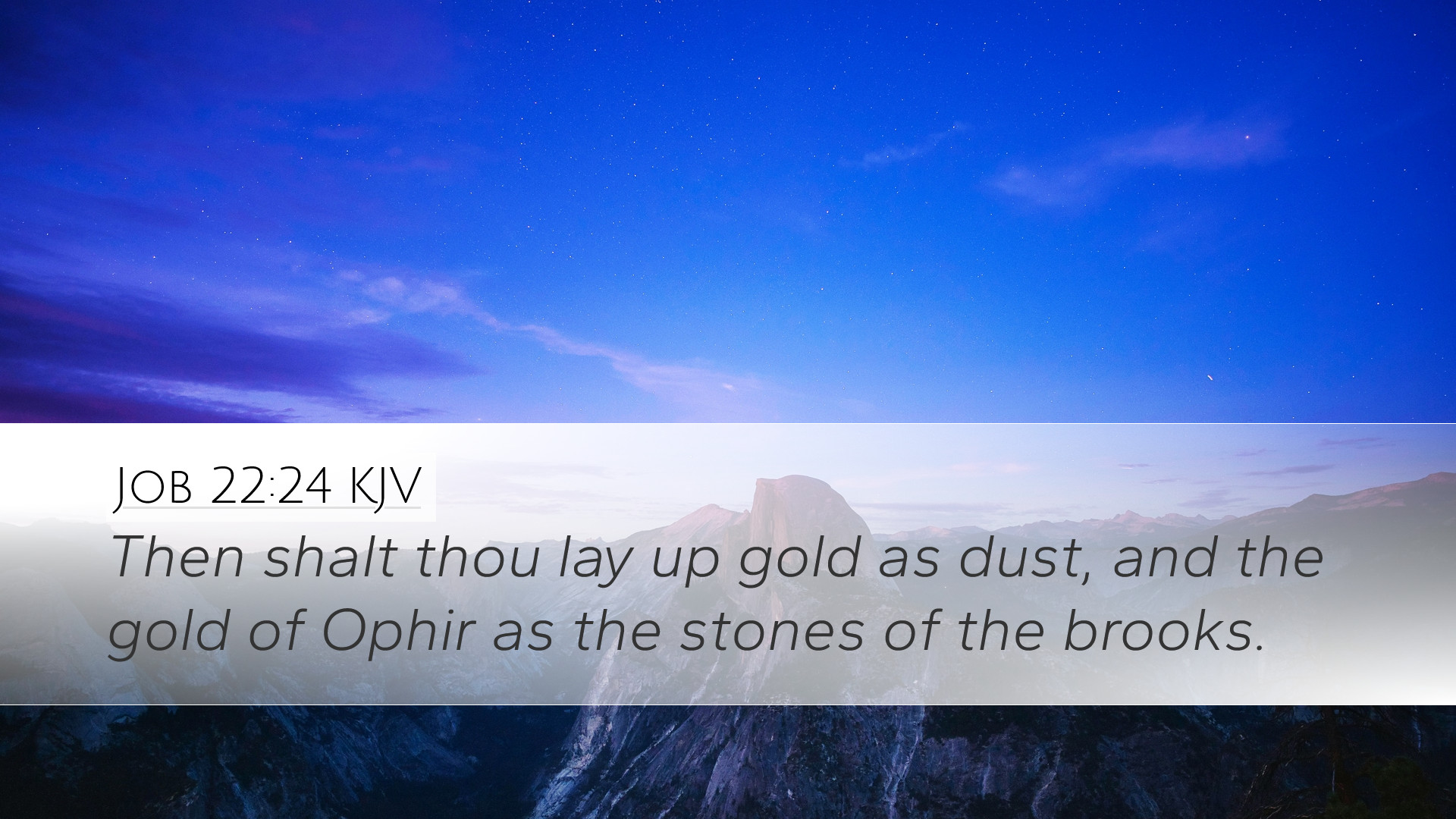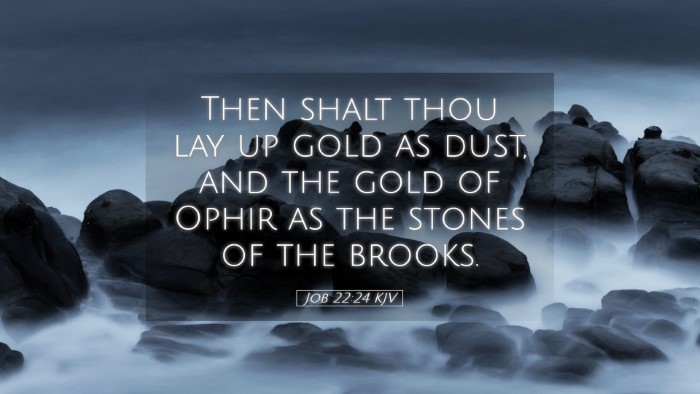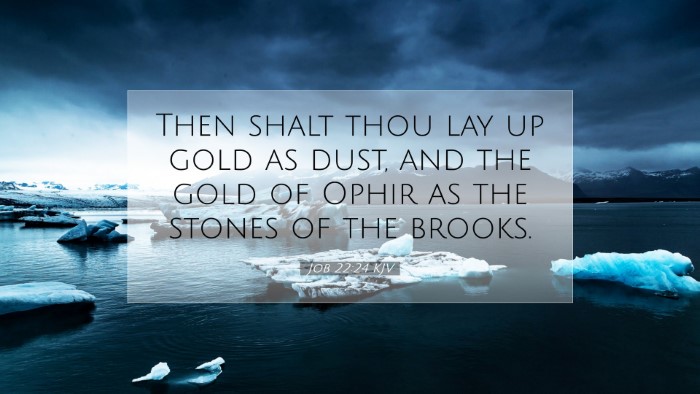Old Testament
Genesis Exodus Leviticus Numbers Deuteronomy Joshua Judges Ruth 1 Samuel 2 Samuel 1 Kings 2 Kings 1 Chronicles 2 Chronicles Ezra Nehemiah Esther Job Psalms Proverbs Ecclesiastes Song of Solomon Isaiah Jeremiah Lamentations Ezekiel Daniel Hosea Joel Amos Obadiah Jonah Micah Nahum Habakkuk Zephaniah Haggai Zechariah MalachiJob 22:24
Job 22:24 KJV
Then shalt thou lay up gold as dust, and the gold of Ophir as the stones of the brooks.
Job 22:24 Bible Commentary
Commentary on Job 22:24
Job 22:24 (ESV): "If you lay gold in the dust, and gold of Ophir among the stones of the torrent,"
Introduction
The verse in question, Job 22:24, invites a deep exploration of the relationship between earthly treasures and divine favor. This commentary synthesizes insights from esteemed public domain commentaries to provide a comprehensive analysis aimed at pastors, students, theologians, and Bible scholars.
Contextual Background
The Book of Job centers on the themes of suffering, righteousness, and divine justice. Job, a blameless and upright man, faces severe trials that raise profound questions about the nature of God and the reasons for human suffering. Chapter 22 contains the discourse of Eliphaz the Temanite, who accuses Job of wrongdoing and suggests that he is suffering due to his sins.
Verse Analysis
The phrase “if you lay gold in the dust” metaphorically conveys the idea of relinquishing one's attachment to material wealth. Eliphaz indicates that true wisdom and piety require one to turn away from the desire for gold and to seek God instead.
-
Gold as a Symbol:
Gold frequently symbolizes wealth, status, and human achievement in biblical literature. Eliphaz highlights the futility of valuing gold above one's relationship with God.
-
The Dust and Stones of the Torrent:
Here, dust represents mortality and the ephemeral nature of life. The reference to the gold of Ophir, known for its purity and value, further emphasizes the contrast between transient material goods and stable spiritual riches.
Theological Implications
This verse raises essential theological questions regarding wealth, priorities, and the human condition. Key reflections include:
-
The Nature of True Wealth:
Matthew Henry posits that spiritual riches far surpass any material wealth. Eliphaz’s exhortation challenges the reader to reconsider their understanding of prosperity.
-
The Role of Repentance:
Albert Barnes underscores the need for repentance, arguing that a true acknowledgment of God’s sovereignty leads one to a place of humility, recognizing that earthly treasures pale in comparison to divine grace.
-
Faithfulness and Trust:
Adam Clarke elucidates that being grounded in faith requires one to prioritize their relationship with God over worldly possessions, which are ultimately fleeting.
Practical Application
For pastors and leaders, the implications of this passage are profound:
-
Teaching Stewardship:
Encourage congregations to practice stewardship not only through giving but by embracing a lifestyle that prioritizes the Kingdom of God over material accumulation.
-
Promoting Generosity:
Highlight the importance of generosity as a reflection of faith, aligning with the biblical principle that wealth should be used to serve others and advance God's work.
Conclusion
Job 22:24 serves as a compelling reminder to believers about the perils of idolatry regarding wealth. Eliphaz's words, though harsh and accusatory, prompt significant reflection on personal values and commitments. Properly understood, this passage can galvanize believers toward a stronger faith and an authentic lifestyle that treasures spiritual wealth above all. As the Christian tradition teaches, laying a firm foundation in God leads to true prosperity that transcends earthly existence.


